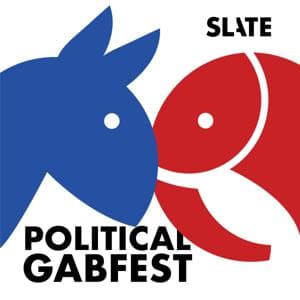In the final episode of When We All Get to Heaven, we catch up on what’s happened in the many years between the emergence of effective treatment for AIDS in the late ‘90s and the fall of 2025, when we recorded this episode. We linger on a moment back in June 1999, when Jim was still pastor and called on the church to remember that AIDS wasn’t over. Because—advances notwithstanding—it still isn’t over.
For more on Gilbert Baker and the history of the rainbow flag see the Gilbert Baker Foundation.
For more on Prep see San Francisco AIDS Foundation, What is PrEP?
“The Path that Ends AIDS: 2023 UNAIDS Global Update” outlines a possible end to the AIDS epidemic.
The story of Jacob’s Ladder is in the book of Genesis chapter 28, verses 10-19.
The text for “This is the Day that God Has Made” is biblical with music by Leon C. Roberts.
“We are Climbing Jacob’s Ladder” is a traditional hymn.
“This Little Light of Mine” – text traditional, music by Penelope Gneisen
“Song of the Soul” is by Cris Williamson and was sung by her at MCC San Francisco on April 24, 2000.
For images and links about this episode visit https://www.heavenpodcast.org/episode-10.
When We All Get to Heaven is produced by Eureka Street Productions. It is co-created by Lynne Gerber, Siri Colom, and Ariana Nedelman. Our story editor is Sayre Quevedo. Our sound designer is David Herman. Our managing producer is Krissy Clark. Tim Dillinger is our consulting producer and Betsy Towner Levine is our fact-checker. We had additional story editing help from Sarah Ventre, Arwen Nicks, Allison Behringer, and Krissy Clark. For a complete list of credits, please visit https://www.heavenpodcast.org/credits.
This project received generous support from individual donors, the Henry Luce Foundation (www.hluce.org), the E. Rhodes and Leona B. Carpenter Foundation, and California Humanities, a non-profit partner of the National Endowment for the Humanities (www.CalHum.org).
Eureka Street Productions has 501c3 status through our fiscal sponsor FJC: A Foundation of Philanthropic Funds.
The music for this episode is from the Metropolitan Community Church of San Francisco’s archive. It was performed by MCC-SF’s musicians and members with Bob Crocker and Jack Hoggatt-St.John as music directors. Additional music is by Domestic BGM.
Thanks to Dr. Judy Auerbach of the University of California at San Francisco.
Thanks to Sue Fulton for permission to use “This Little Light of Mine.”
Thanks to Cris Williamson for permission to use “Song of the Soul.”
Great thanks, as always, to the members and clergy of the Metropolitan Community Church of San Francisco who made this project possible.
Some links to good groups:
The Metropolitan Community Church of San Francisco – the congregation’s current website.
Metropolitan Community Churches – the denomination of which MCC San Francisco is a part.
San Francisco AIDS Foundation – a place to seek information about HIV.
POZ Magazine – a place to learn everything else about HIV (information included).
Save AIDS Research – their recent, epic 24 hours to Save Research conference with all the latest HIV research is available on YouTube through this site.
LGBTQ Religious Archives Network – the place to get lost in LGBTQ+ religious history.
Get more Outward with Slate Plus! Join for weekly bonus episodes of Outward and ad-free listening on all your favorite Slate podcasts. Subscribe from the Outward show page on Apple Podcasts or Spotify, or visit slate.com/outwardplus for access wherever you listen.
Learn more about your ad choices. Visit megaphone.fm/adchoices























































